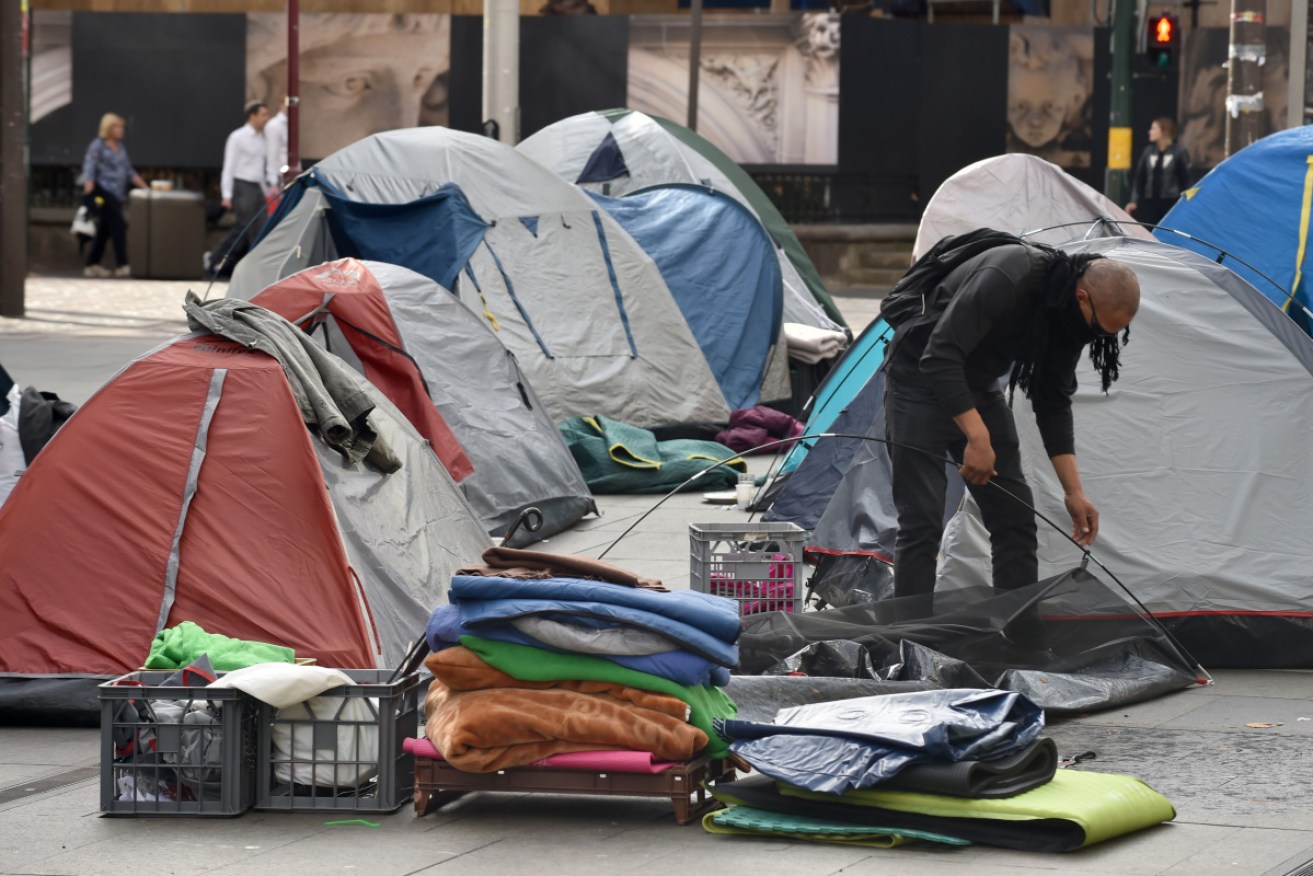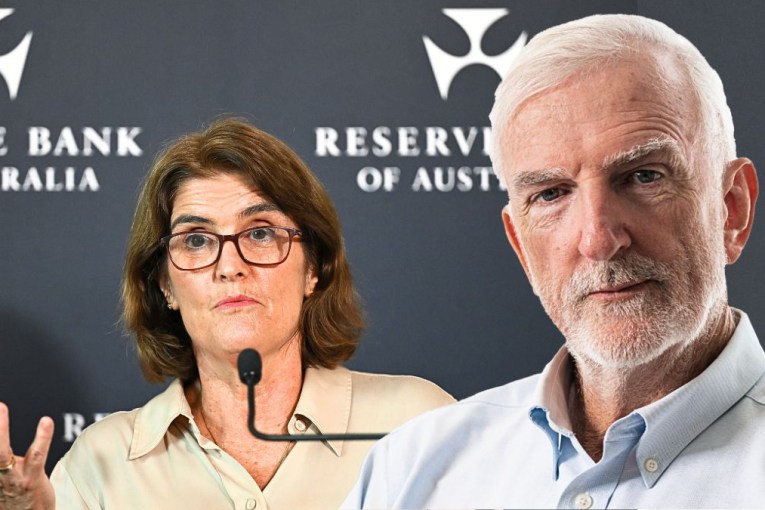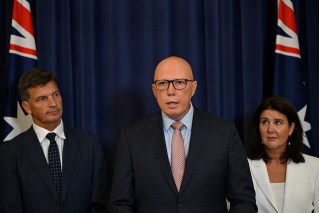Michael Pascoe: Federal government kills social housing hopes


Everyone says we need more social housing. The government won't listen.
There has been one consistent, loud and very helpful suggestion made from many quarters about what the federal government could most efficiently and productively do to stimulate employment and business: Build extra social housing.
And the verdict from the federal government is: No – it’s not happening.
With perverse synchronicity, on the same day a telling National Homelessness Week report was released, the AFR‘s Phil Coorey had the inside word that, while the government would pepper its October budget with housing incentives, it didn’t want to know about social housing.
Federal Housing Minister Michael Sukkar reportedly told a closed conference that the Commonwealth did not want to “usurp the states and territories” on social housing.
A mildly sceptical soul might think there are no votes for the Coalition in social housing, so the government will leave it to the states and instead trot out various shades of middle-class housing welfare that will play well to the faithful.
A little perspective before moving on, a little stating-the-obvious from more reports and studies over the years than I care to remember:
- There is a shortage of social housing. The story differs a bit from place to place, but lengthy waiting lists are rather standard. Even crisis accommodation is often in short supply
- The real housing crisis in Australia isn’t affordability for first-home buyers, but shelter for people who will never be able to buy a home
- The proportion of public housing in Australia is low by developed world standards and has been steadily falling for decades

Mr Morrison is more interested in helping middle-class home buyers than those in need.
- People on the economic margin forced to rely on the private rental market are more often than not up the proverbial creek, especially in our major cities with little available stock. And the stock that is affordable is often substandard
- Especially for poor families – cue single parents – the lack of security in the private rental market is debilitating. Having to move at the whim of a private landlord does not help families settle into schools and connect with communities
- The lack of social housing creates greater costs elsewhere for society. (Check the Homelessness Week report for examples of what a difference the provision of secure shelter can make to individuals)
- By the nature of the free market, the private sector understandably will charge the most the market can bear. In areas where accommodation is in high demand (i.e. areas with better transport and community resources), the disadvantaged don’t get a look in, ensuring continued disadvantage
- There is a tendency for states to increasingly outsource their social housing – and from aged care to hotel quarantine security, outsourcing does not guarantee superior outcomes.

Construction was struggling even before COVID-19.
- Those who have been playing along know that housing construction was turning down before the ‘Rona Recession and the government’s token HomeBuilder program will make marginal difference to the bigger impact of the virus on housing construction, as demonstrated here previously by Macromonitor
- The Reserve Bank’s great hope for reviving the soft pre-COVID economy was that cheap money would reignite the housing price bubble, which in turn would eventually encourage more home building. Cheap money was pushing up housing prices before the virus hit, but the collapse in population growth, high and rising unemployment and general uncertainty mean even that poor substitute for a policy has been destroyed – and nothing has replaced it.
All in all, the time is right for direct and immediate federal funding of extra social housing.
The feds have the greater ability to provide the money. It is the sort of good that could come out of disaster, a means of providing a lasting public benefit from stimulus spending.
But the government doesn’t want to know about it. Philosophically, as well as politically, it is not this government’s cup of tea. Landlords and home buyers are what the Coalition is more interested in.
The AFR report doesn’t say what the Michael Sukkar’s “closed conference” was, but it’s not too hard to guess it was a Coalition-friendly building industry affair.
(It’s another matter about the ethics of the government briefing supporters about key budget initiatives while leaving the public in the dark, but ethics aren’t high on the agenda of an administration that has taken grant corruption to unprecedented highs and accountability to new lows.)
Mr Coorey’s report suggests there will be a grab bag of housing-related policies in the budget – most rather painless, all aimed at the relative middle class. (Yes, Virginia, first-home buyers are mostly middle class.)
It’s a no-brainer that the Home Loan Deposit Scheme will be extended, allowing FHBs to avoid mortgage insurance with a deposit as low as 5 per cent, although it remains to be seen how robust demand from FHBs will be when many would-be buyers are looking for more work.

The RBA can no longer cut rates to boost demand for housing.
I’d guess there’s a fair chance the Prime Tradie will extend his HomeBuilder scheme as well.
The AFR reports there will be one crumb for social housing with the “tweaking” of an existing scheme that was supposed to help social and affordable housing projects: “The National Housing Infrastructure Facility is a $1 billion fund to provide concessional loans, grants and equity finance for affordable housing.
“Of the $1 billion originally allocated towards the scheme, there is still $800 million unspent and the government is looking at ‘repurposing’ the scheme to get the money out the door.”
In other words, the scheme has been a dud when there’s been so little take up.
And no wonder – the National Housing Finance and Investment Corporation scheme looks like the sort of bureaucratic nightmare that would feature on Utopia.
The $1 billion facility is only available for helping with bits and pieces of infrastructure around the edges of social housing – paying for utilities.
“Tweaking” it means no new money will be injected.
Given the chance of making the best of a crisis, of achieving a lasting public benefit in these dark times, the government will instead remain doctrinaire – the free market über alles.
Well, more and better social housing would be of no benefit to landlords at the cheap end of the market, investors who have been encouraged to get into the business by government tax policies and then effectively subsidised by rental assistance paid to people on welfare.
The government might be philosophically more attracted to the “build-to-rent” push – another whole industry keen for tax breaks to encourage corporate-level landlords. (Super funds, including industry super funds, are quite keen on the idea.)
Leaving aside neoliberal dogma, I’m yet to see why such a policy would be superior to a decent, direct government housing program.
But let’s not let the best outcome get in the way of the most politically advantageous policies.
Opportunity knocked. The Morrison government didn’t answer – probably too busy seeking inspiration from Margaret Thatcher and Ronald Reagan.








